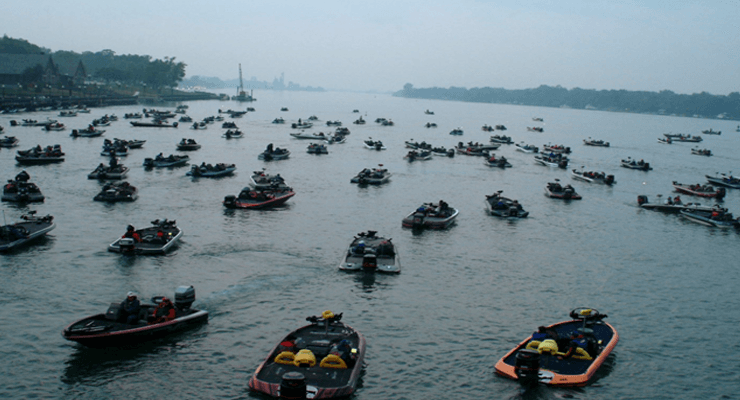As fishermen, we’re normally easygoing, non-confrontational and just want to be left alone to wet a line. But that peaceful image might have been shattered in a big way last Saturday when angry anglers in boats surrounded Minnesota Gov. Mark Dayton out on Lake Mille Lacs to protest a ban on walleye fishing there.
As if taking a page from an activist handbook, some 75 unhappy fishermen encircled the governor, who was on the lake reportedly bass fishing. A spokesman said the governor was actually expecting the protesters who were shouting at him and making it difficult for him to fish. The protestors were primarily residents and local business owners negatively affected by the walleye ban.
Walleye fishing, including catch-and-release, is prohibited on the lake until the end of the month. The governor says the ban is in place to protect walleyes from hooking mortality, the problem of fish dying after they’re released. However, those losing revenue due to the ban and area residents claim it’s more about politics than the walleye population.
Dayton’s boat spent about 90 minutes on the water before packing it in and heading back to shore. Regardless, the governor refused to lift the ban and he also canceled a meeting with local business owners, saying he respects the protesters’ frustration, but stands with the ban.
The Minnesota protest is another indication that the fishing fraternity has recognized it must become activists in influencing public policy on fishing as well as taking on those groups that use bogus claims of conservation to oppose fishing altogether. And there are recent good examples of success.
For instance, the recognition on the federal level of the importance and economic impact of the nation’s recreational fishing community; the five states bordering the Gulf of Mexico successfully negotiating positive changes in federal Red Snapper regulations for their recreational anglers; and successful calls for an end to policies that have failed to use science-based data in resource management decisions impacting both recreational and commercial fishing, two fundamentally different industries, among other gains.
These days, there is unparalleled cooperation by recreational boating and fishing industry organizations led by the National Marine Manufacturers Association and the America Sportfishing Association to gain modernization of the Magnuson-Stevens Act. This law was enacted to promote the U.S. fishing industry’s optimal exploitation of coastal fisheries by “consolidating control over territorial waters.” The Implementation of Magnuson-Stevens has been totally one-sided toward the commercial fishing industry. But boating and fishing are now saying that enough is enough.
Indeed, gaining continued recognition of the nation’s recreational fishing impact seems certain to be a major point of discussion in Orlando starting Wednesday at the opening of ICAST, the fishing industry’s three-day annual trade show that includes an extensive marine equipment pavilion by the NMMA.
Meanwhile, as an interesting side note, today is the annual “Fish Ohio Day” on Lake Erie to call media attention to angling opportunities there. While there’s no confirmation that Gov. John Kasich will attend (Lt. Gov. Mary Taylor is confirmed), many anglers in the Buckeye state have been stunned and angered by the Kasich administration’s sudden axing of Ohio Division of Wildlife chief Ray Petering.
There has been a raging battle in Ohio over the need to raise fishing and hunting license fees to ensure future financial stability of the wildlife division, a move widely supported by sportsman’s groups in the state, but opposed by the administration.
The sudden firing of Petering caused the Columbus-based U.S. Sportsman’s Alliance to speculate that it’s political payback for Petering’s belief that increases to hunting and fishing license fees for Ohio residents are necessary to stave off impending financial challenges for the Wildlife Division.
Could a fleet of angry activist anglers be surrounding the Ohio governor or his representatives to interrupt their walleye fishing and make their point as you read this today?

